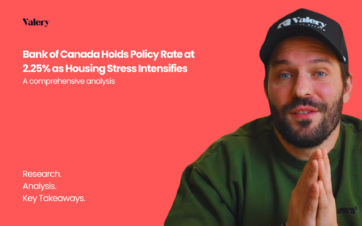Table of Contents
The real estate trends in the Canadian market for 2025 are creating waves of curiosity and concern. With everything from looming elections and trade wars to fluctuating interest rates and housing affordability challenges, understanding these real estate trends is essential for anyone involved in buying, selling, or investing in Canadian real estate. In this article, we’re diving into the key real estate trends and risks affecting the Canadian market right now. Whether you’re a buyer, seller, or real estate agent, understanding what’s happening can help you make more informed decisions.
The State of the Market: Uncertainty Rules
The current real estate trends are heavily influenced by political and economic factors, and right now, uncertainty is the biggest driver. Political events like the upcoming Canadian election, potential trade wars, and evolving economic policies are shaping the real estate trends we’re seeing. When uncertainty takes center stage, it directly impacts real estate trends by causing hesitation among buyers and sellers alike.
How Politics and Trade Wars Impact the Market
Political uncertainty and trade wars are among the top real estate market risks to watch. The potential for tariffs and new economic policies is a huge concern, affecting the market across Canada. With major decisions on the horizon, buyers are holding back, waiting to see how these trends will play out. The April 2nd deadline for new tariffs and the April 28th Canadian election are both critical milestones that will influence where the market will go next in 2025.
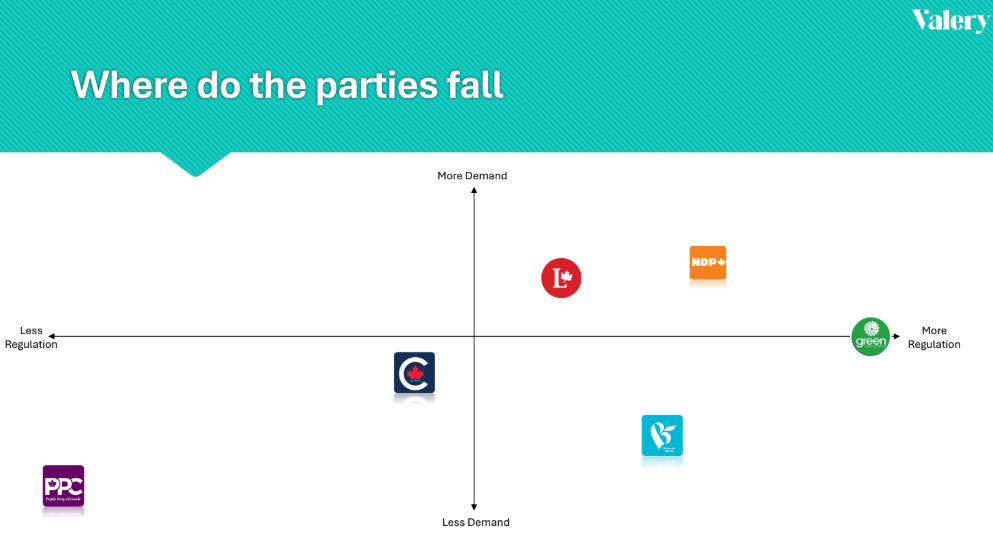
Recession Concerns and Inflation Worries
Another factor influencing the real estate market is the looming risk of recession. Experts believe Canada is already in recessionary territory. Rising inflation and stagnant economic growth are impacting buyers and sellers’ decisions by making mortgages more expensive and reducing housing affordability. Understanding how the market respond to economic stress is crucial if you’re planning to buy, sell, or invest in 2025.
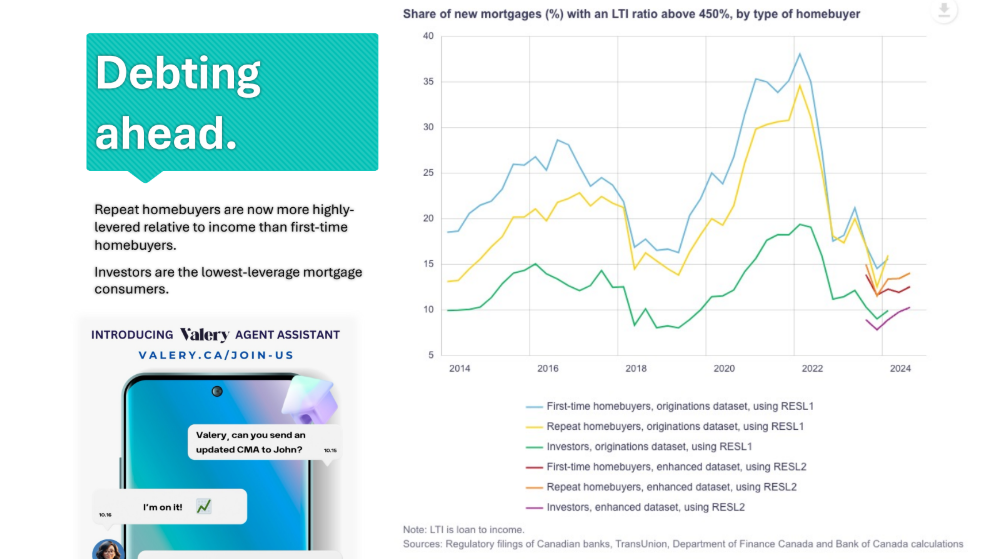
Current Real Estate Trends to Watch
Increased Listings & Lower Transaction Volumes: One of the most significant trends of 2025 is the record-high number of active listings in markets like the Greater Toronto Area (GTA). This creates opportunities for buyers but makes it harder for sellers to attract offers.
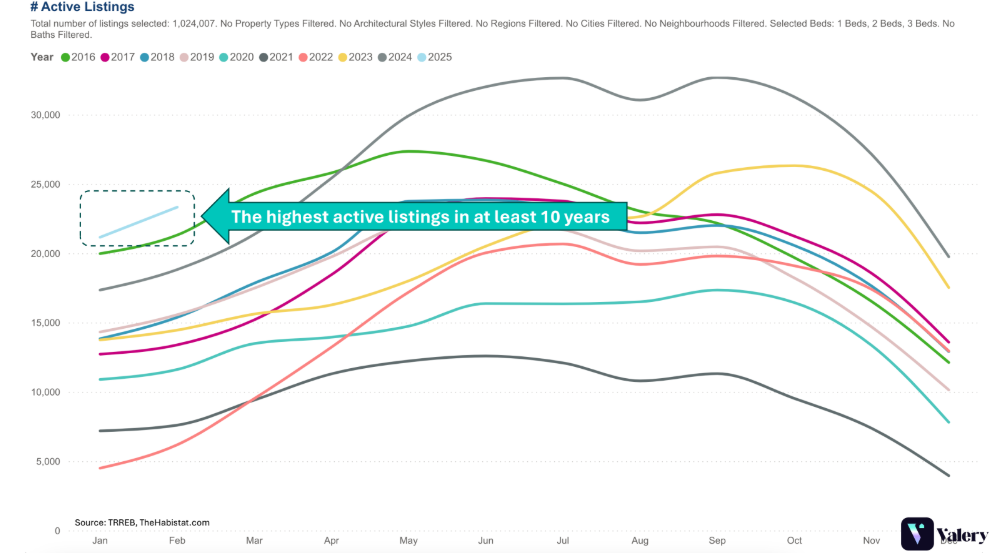
Leasing as a Viable Option: The market is indicating that it is slowing down, making leasing a more attractive option for both sellers and investors.
Flat or Declining Prices: Prices are showing signs of stagnation, with some areas even experiencing slight declines. Sellers need to adjust their expectations accordingly.
Investor Activity: Investors are keeping a close eye on the market, looking for opportunities to buy properties at discounted prices and profit from future market recovery.
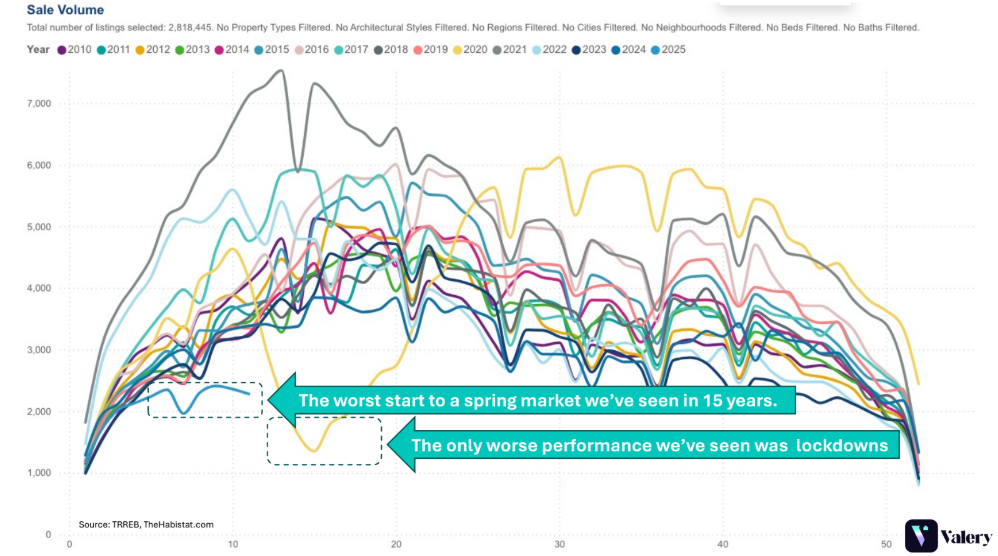
Strategies for Staying Ahead of Real Estate Trends
With all these real estate trends creating challenges and opportunities, what should you do?
For Buyers: The current real estate trends favour buyers. If you’re looking for good deals, they’re out there. Be proactive and don’t be afraid to negotiate.
For Sellers: Real estate trends indicate that selling may be challenging right now. Consider listing your property for both sale and rent to see what the market offers.
For Investors: Stay active. Track real estate trends, especially related to housing affordability, trade war impacts, and recession risks. When conditions are right, be ready to act.
The real estate trends of 2025 are complicated, but understanding them can empower you to make smarter decisions. Whether you’re a buyer, seller, or investor, staying informed about real estate trends and real estate market risks is essential. Knowing how factors like political events, economic policies, and mortgage rates affect real estate trends will give you an edge.
But that’s easier said than done. The thing is, the real estate market is constantly changing, and trying to keep up can be tedious. But with Valery AI by your side, it doesn’t have to be hard. Valery AI is your real estate AI companion, helping home buyers and sellers make confident decisions through unbiased guidance and market intelligence before engaging an agent. If you need more clarity on your journey, click on the bottom right corner and ask our conversational AI, it’ll give you all the answers you need.

